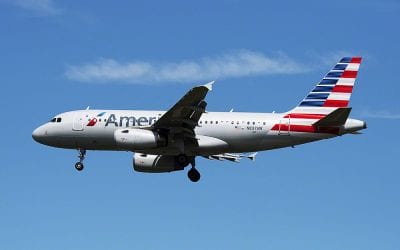After the summer crush and thunderstorms, and before the holidays and snow, October is usually one of the least cruel months for airline passengers.
However, these days, airline travel can be a nightmare at any time, even when travelers are smart and experienced. We’ve reached the point where it’s not even surprising any more.
Here is a recent example.
A friend and her daughter were traveling from San Francisco to Cedar Rapids to see a dying relative. She is a Premier frequent flier program member with United Airlines. From experience she knew enough to try to avoid Chicago’s O’Hare Airport, which has been a complete mess this month after a fire damaged the air traffic control center.
Although it wasn’t possible to avoid this plagued airport on the way out, they prudently scheduled layovers with more than two hours in each direction.
The San Francisco-to-Chicago flight started out late. It became later and later en route, with no explanation. They knew their connection was going to be close, but they were taking the last flight from Chicago to Cedar Rapids, which airlines are traditionally more likely to hold.
Not this time. The connection left a few minutes early; hence, they missed that connection. United finally rebooked them for the next morning. The airline offered nothing in the way of vouchers for food or hotels, not even a discount voucher for a hotel. Fortunately, because the mother was a frequent Hilton guest, my clients were able to get a room at the nearly sold-out Hilton connected to the airport (apparently others were turned away).
On the return, the flight from Cedar Rapids to Denver was listed as on-time. And, the plane was there. Unfortunately, the crew that was flying the plane was arriving from Chicago. THAT flight was late. Very late. Seven hours late. (It would have taken less than four hours to drive between the two cities.)
The result — they arrived in Denver at 2 a.m. All flights to San Francisco had long since left. United had rebooked them on the first available flight the next day, which wasn’t until early afternoon. This time, the airline decided to provide vouchers for a Days Inn, but sent them on a shuttle to the wrong Days Inn. (There are two that call themselves airport hotels.) Of course, the second Days Inn wouldn’t accept the United Airlines voucher and wouldn’t offer any discount at all.
At this point, my clients could have tried to get a cab to the correct hotel, but it was nearly 3 a.m. They were angry enough, however, to call a Red Lion hotel they saw across the street and found a better rate.
Finally, the next day they made it back to San Francisco around 4 p.m., about 24 hours after they were scheduled to leave Cedar Rapids.
The worst thing about this story — it isn’t even that shocking anymore to regular travelers. Today, the system is so stretched with so little margin for error that it doesn’t take much to start the downward spiral going.
In this case, with seasoned travelers who had the ability to book and pay for decent hotels, they were able to buy their way into at least a little comfort. But, anyone in this situation on a really tight budget, or simply inexperienced, might have ended up sleeping in the terminal on the outbound. Then, on the return, cabs near suburban airport hotels at 3 a.m. are not always easy to find or call.
Compounding this sort of problem is that in a deregulated airline world there doesn’t seem to be a hard and fast rule for what airlines should do when they strand passengers overnight.
On the United website it says:
For issues within United’s control, such as required maintenance or lack of crew availability … customers in a connecting city may be offered complimentary hotel accommodations depending on the amount of time involved and the location of the hotel. But for delays and cancellations that are not within United’s control, such as weather or air traffic control … we may be able to give you a distressed passenger rate voucher for a nearby hotel. These discounted rates, when available, will often be lower than those you would receive if you were to contact the hotel directly. Your accommodations will be at your own expense.
United isn’t alone with this sort of squishy legal policy. Note the repeated word, “may.” And, of course, there is the issue as to under whose control any flight is canceled or delayed. In my experience, if there is a chance any airline can claim it’s not their fault, they will.



